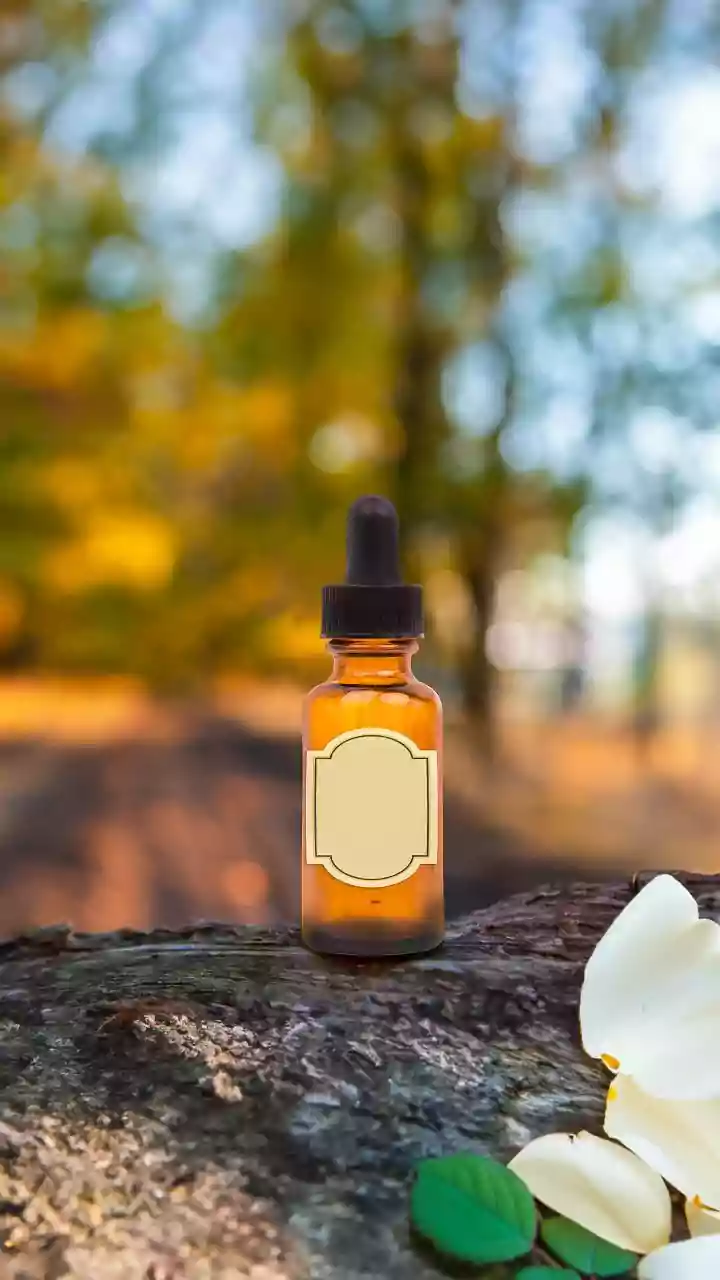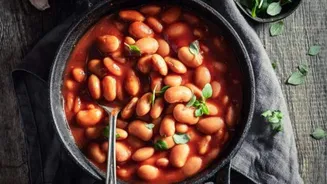The Power of Oils
For generations, Indian women have embraced the power of hair oils, passing down time-tested recipes and rituals. These oils are not mere cosmetic products
but are deeply rooted in Ayurvedic traditions, known for their nourishing and restorative properties. They work by penetrating the hair shaft, providing essential nutrients and hydration to the scalp and follicles. This leads to improved circulation, reduced hair fall, and accelerated growth. Moreover, hair oils can protect the hair from environmental damage, such as sun exposure and pollution. The benefits extend beyond mere aesthetics; using oils promotes overall hair health, leading to stronger, more resilient hair that can withstand styling and other treatments. By incorporating these oils into your routine, you're not just applying a product but embracing a tradition that has enhanced Indian beauty for centuries.
Coconut Oil's Magic
Coconut oil is a quintessential Indian hair oil, and for a good reason. It’s readily available, affordable, and incredibly versatile. Rich in fatty acids, it deeply moisturizes the hair, reducing protein loss and preventing breakage. Coconut oil's ability to penetrate the hair shaft makes it an effective conditioner, leaving hair feeling soft and manageable. It is also known for its antimicrobial properties, which can help keep the scalp healthy and prevent dandruff. Application is straightforward; you can warm the oil and gently massage it into your scalp, leaving it on for a few hours or overnight before washing. Regular use of coconut oil will gradually lead to stronger, healthier hair, making it a staple in many Indian households. Coconut oil provides a simple yet powerful way to maintain and enhance hair's natural beauty.
The Benefits of Amla
Amla oil, derived from the Indian gooseberry, is a powerhouse for hair growth and strength. Rich in Vitamin C and antioxidants, amla oil stimulates the scalp, encourages hair growth, and prevents premature greying. The high concentration of Vitamin C boosts collagen production, which strengthens hair follicles and minimizes hair fall. Amla's anti-inflammatory properties also promote a healthy scalp. When using amla oil, massage it gently into the scalp and hair, allowing it to absorb the nutrients before rinsing. Regular application of amla oil can lead to thicker, more lustrous hair and also contributes to the overall health of the hair by repairing damage and preventing future problems. Its use signifies a commitment to natural hair care, rooted in traditional remedies known for their effectiveness.
Argan Oil's Wonders
Argan oil, often hailed as 'liquid gold,' is celebrated for its hydrating and restorative effects. Extracted from the kernels of the argan tree, this oil is rich in Vitamin E, antioxidants, and essential fatty acids. It helps to moisturize dry, brittle hair, reducing frizz and split ends. Argan oil’s lightweight texture means it’s absorbed quickly, leaving hair feeling soft and manageable without weighing it down. It also protects hair from heat damage caused by styling tools. To benefit from argan oil, apply a few drops to your hair after washing, or use it as a deep-conditioning treatment. Its regenerative properties make it an excellent choice for those looking to repair damage and improve overall hair texture. The use of argan oil offers a modern approach to hair care with a focus on natural healing.
Sesame Oil's Protection
Sesame oil is a warm, nourishing oil often used in Ayurvedic practices for its protective qualities. It is rich in vitamins E and B, along with minerals like magnesium and calcium, which can contribute to hair health. Sesame oil protects hair from the harmful effects of UV rays and environmental stressors, strengthening the hair shafts and preventing breakage. It also helps to soothe a dry, itchy scalp, offering relief from dandruff and other scalp issues. You can warm sesame oil before application to enhance its penetration into the hair. Massage it thoroughly into your scalp, leaving it for several hours or overnight before washing. Regular application of sesame oil can lead to thicker, more resilient hair, adding to the overall shine and manageability.
Castor Oil's Growth Boost
Castor oil is a well-regarded oil renowned for its capacity to foster hair growth. It contains ricinoleic acid, an omega-9 fatty acid, which enhances circulation in the scalp, potentially stimulating hair follicles and promoting growth. It is thick, so a small amount goes a long way, and it also helps in moisturizing the hair and scalp, minimizing dryness and promoting hair's strength. Apply castor oil directly to the scalp, gently massaging it in, and leave it on for a few hours or even overnight before washing. Castor oil is often mixed with lighter oils, like coconut or sesame, to make it easier to apply and wash off. Regular application may lead to fuller, thicker hair, helping in tackling issues such as hair fall and promoting overall hair health.
Jojoba Oil's Balance
Jojoba oil is unique because it resembles the natural sebum produced by the scalp, making it an excellent choice for balancing oil production. It moisturizes the hair and scalp without leaving a greasy residue. Jojoba oil is packed with vitamins and minerals that nourish the hair follicles, encouraging hair growth. It helps to unclog hair follicles, contributing to a healthier scalp, while preventing issues like dandruff. You can use jojoba oil as a pre-shampoo treatment or as a leave-in conditioner. Massage it into your scalp and hair, distributing evenly from roots to tips. Jojoba oil can add shine, improve manageability, and promote a balanced scalp environment, leading to overall hair health and vitality.
Olive Oil's Deep Conditioning
Olive oil, a culinary staple, is also a remarkable hair treatment. Rich in antioxidants and fatty acids, it penetrates the hair shaft, providing deep conditioning and moisture. Olive oil helps to strengthen hair, reduce breakage, and improve elasticity, especially beneficial for dry or damaged hair. Its conditioning properties make it a natural detangler, improving manageability and shine. To utilize olive oil, warm it gently and apply it to the scalp and hair, concentrating on the ends. Leave it on for at least 30 minutes before washing with a mild shampoo. Regular use of olive oil leaves hair feeling soft, strong, and revitalized. The benefits of olive oil for hair are significant, enhancing both the look and feel of the hair.
Almond Oil's Softening Effect
Almond oil is known for its light texture and sweet scent, making it a delightful addition to your hair care routine. It is rich in Vitamin E, fatty acids, and proteins, contributing to soft, manageable, and shiny hair. Almond oil hydrates and nourishes the scalp, reducing dryness and flakiness. It can also strengthen hair, minimizing split ends and breakage, promoting longer and healthier hair. Using almond oil is simple; apply a small amount to your hair, focusing on the ends, and massage gently. Leave it on for a few hours or overnight for a deep conditioning treatment before washing. Regular use of almond oil improves the texture, adds shine, and protects against damage, making it a versatile and effective hair oil.
Neem Oil's Scalp Health
Neem oil is a potent oil, especially effective for promoting scalp health. Its antibacterial and antifungal properties help in controlling dandruff, scalp infections, and itchiness. Neem oil also improves the health of hair follicles and encourages hair growth. When applying, mix neem oil with a carrier oil such as coconut or sesame due to its strong smell and potency. Gently massage it into your scalp, allowing it to sit for a few hours before rinsing. Regular use of neem oil promotes a healthy scalp environment and may lead to less hair fall and improved hair growth. It is a go-to choice for anyone seeking to combat scalp problems and boost overall hair health.




















